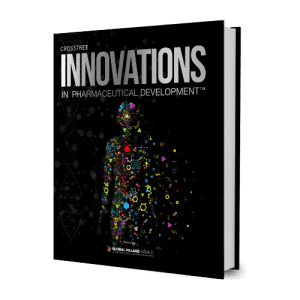On joining Phlexglobal in 2007, and becoming immersed in the trial master file (TMF) space, I didn’t imagine that something that seemed to get so little focus (a TMF was really just a paper archive) could turn into such an innovative space. When I started, an eTMF was broadly an unknown apart from a few of the biggest Pharmaceutical companies, and the systems they used were disparate, with personalised TMF structures and limited remote access, if any.
Roll forward 13 years and the world has completely changed. The first key innovation has to be theTMF Reference Model (TMF RM), of which I was honoured to be a founder, and which I continue to chair today. The TMF RM was driven out of a problem there was no standardisation of the structure of TMFs, and today we have global adoption of the TMF RM as a standard – an industry driven initiative to standardize the content, naming and structure of Trial Master Files. This facilitated the world-wide adoption of eTMF technology, specifically cloud based to allow for remote access.
The importance of the TMF has also been dramatically enhanced – especially by the MHRA who announced in 2011 that if a TMF did not meet the required standards, a critical finding could be issued. Every time a company runs a trial, it is mandated to have a TMF for documents that tells the story of the trial, and now the Regulators have a sharp eye on TMFs too.
TMF processing and quality control has, until now, been a very manual process. The innovation we currently find ourselves surrounded by is machine learning and artificial intelligence. Our automation technology can auto index study documents and check their quality. This means that people can free themselves from repetitive, time-consuming manual effort and focus their experience and knowledge on more critical study and compliance related tasks – a game changer for our industry.
Just a Quick Note:
InnovationsOfTheWorld.com has partnered with Trade License Zone (TLZ) to support global innovators looking to expand internationally. Take advantage of the UAE’s Free Zones—enjoy streamlined setup, low corporate taxes, and a strategic gateway to the Middle East and beyond.
Get Your UAE Free Zone License Fast & Easy!So where do we go from here? I believe technology will help us conquer the three primary TMF challenges – timeliness, quality and completeness. Data flows between systems coupled with automation will allow us, at the press of a button, to understand the compliance of our TMFs, and will direct the TMF owner’s attention to where it is most needed. Whilst the Pharmaceutical industry has been historically slow at adopting new technologies such as electronic signatures, it is clearly seeking the transformational benefits of new technologies such as AI. From first-hand experience among customers and industry peers, I believe that we are firmly in the midst of digital evolution.














